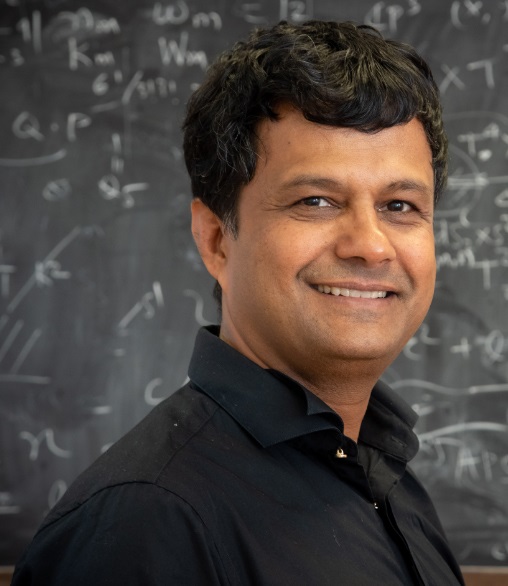
Dabholkar, Atish
Well-known for his research on quantum black holes, quantum gravity, and string theory, Atish Dabholkar is currently the director of the Abdus Salam International Centre for Theoretical Physics (ICTP) in Trieste, Italy. His many honours include the Shanti Swarup Bhatnagar Award (2006), the Chaire d’Excellence of the Agence Nationale de la Recherche in France in 2007, and the National Leadership Award (2008).
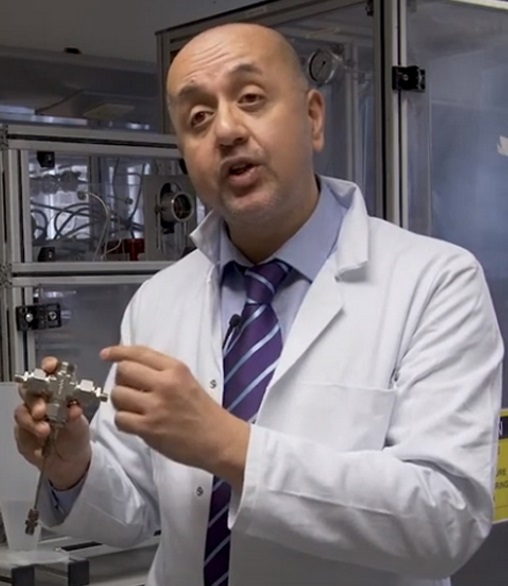
Darr, Jawwad
Jawwad Darr is Professor of Materials Chemistry at University College London and a leading academic in advanced functional materials for nanotechnology processing. From 2016 to 2021, he was vice dean of enterprise in the Maths and Physical Sciences faculty at UCL. In 2017, he co-founded the UPSIGN charity (UK-Pakistan Science and Innovation Global Network) to support, educate and connect Pakistani origin academics and students through public outreach workshops and lectures.
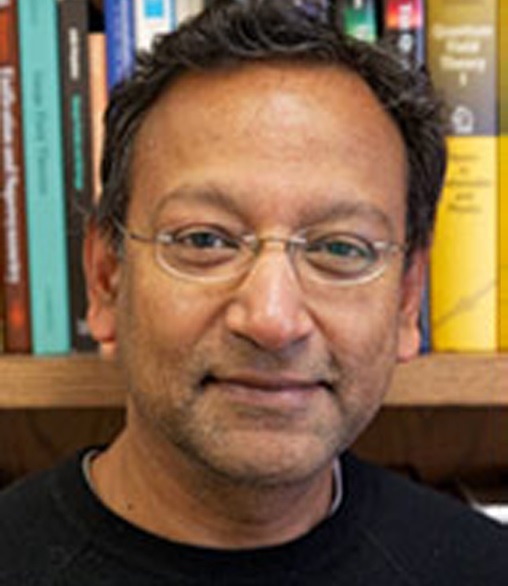
Husain, Viqar
Viqar Husain is a professor in the Department of Mathematics and Statistics at University of New Brunswick, Canada, and an affiliate researcher at the Perimeter Institute for Theoretical Physics. His main research interest is in quantum gravity-–the search for a unified theory of gravitation and quantum mechanics. He is known for work on applying ideas about quantum gravity to black holes and cosmology.
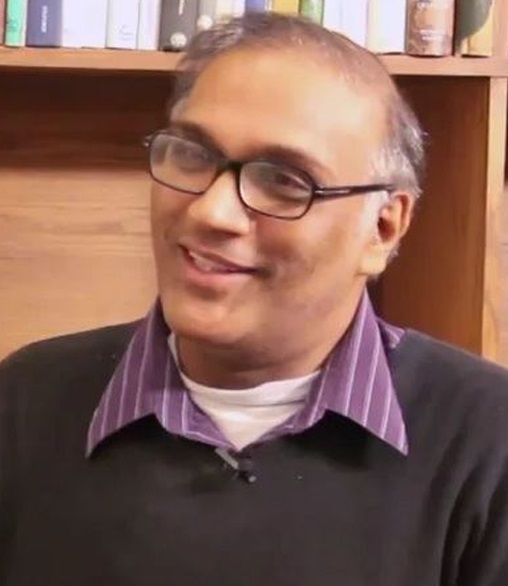
Iqbal, Amer
Known primarily for his work in string theory and mathematical physics, Amer Iqbal is a Pakistani American theoretical physicist with doctorate from MIT. He was a professor of physics at Lahore University of Management Sciences and Abdus Salam School of Mathematical Sciences. Earlier he held a faculty position at University of Washington and postdoctoral positions at the University of Texas at Austin and at Harvard University. Amer is recipient of the Abdus Salam Award for physics (2012) and the COMSTECH Award for physics (2020).
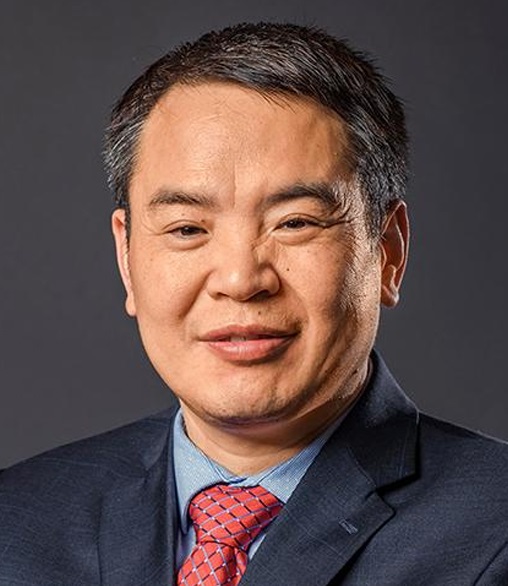
Ji, Xiangdong
Xiangdong Ji is founder-director of the Center for Nuclear Femtography at the University of Maryland where he is a Distinguished University Professor. As professor and chair of the Institute for Nuclear and Particle Physics at Shanghai Jiao Tong University, he headed the Pandax dark matter search experiment. His research focuses presently on nucleon structure in Quantum Chromodynamics. He is a Fellow of the American Physical Society, a recipient of the 2003 Outstanding Overseas Young Chinese Scientist Award, and winner of the 2016 Herman Feshbach Prize in Theoretical Nuclear Physics.
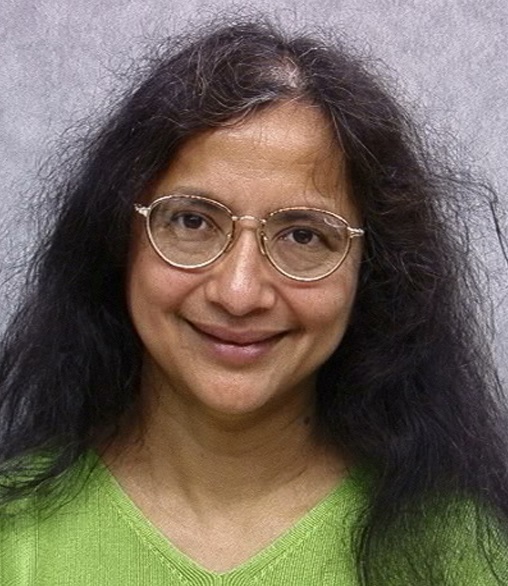
Rahman, Talat
Talat Rahman, a Fellow of the American Physical Society, is the Distinguished and Pegasus Professor at the Department of Physics, University of Central Florida, and section editor of the new Journal of Physics: Condensed Matter section on Physics of Chemical Processes. Rahman has been an invited scientist at many of the world’s most important research labs. Her awards include the UNDP Fellowship, the CNR-Italy Research Fellowship and Alexander Von Humboldt Fellowship. In 1998 she received K-State’s University Distinguished Graduate Faculty Member Award.
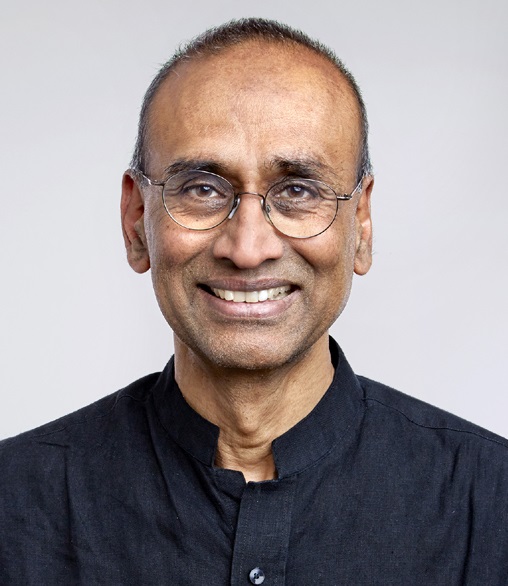
Ramakrishnan, Venki
Co-winner of the 2009 Nobel Prize for his role in deciphering the structure of the ribosome, Dr. Venki Ramakrishnan is a Group Leader in the Laboratory of Molecular Biology in Cambridge, England, where he is also an Emeritus and Honorary Fellow of Trinity College. His other awards include the Louis-Jeantet Prize for Medicine (2007). His highly acclaimed book Gene Machine is a frank account of the race for the structure of the ribosome and of the human side of scientific endeavour. He served as President of the Royal Society from 2015-2020.
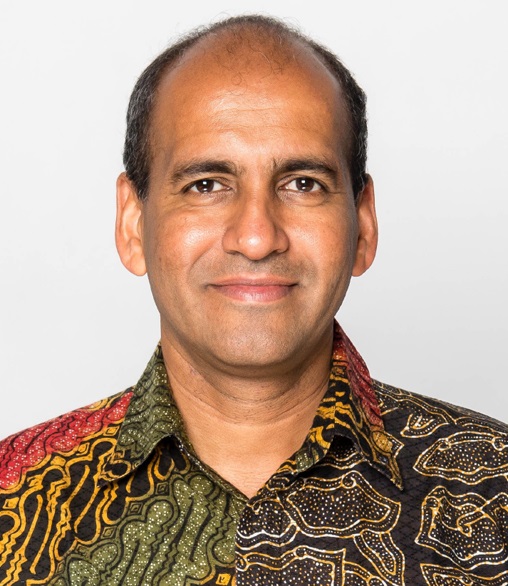
Ramana, M.V.
M. V. Ramana is Professor and Simons Chair in Disarmament, Global and Human Security at the School of Public Policy and Global Affairs (SPPGA), University of British Columbia. In 2003, Ramana was awarded a Guggenheim Fellowship, In 2014, he received the Leo Szilard Award of the American Physical Society. He is co-editor of Prisoners of the Nuclear Dream (Orient Longman, 2002) and author of The Power of Promise: Examining Nuclear Energy in India (Penguin, 2013).

Raza, Azra
Azra Raza is the Chan Soon-Shiong Professor of Medicine and Director of the MDS Center at Columbia University in New York. She is the recipient of numerous awards including The Hope Award in Cancer Research 2012 (shared with the Nobel Laureate Dr. Elizabeth Blackburn), as well as the author of The First Cell: And the Human Costs of Pursuing Cancer to the Last (2019). Dr. Raza is a member of the Founder Group designing Breakthrough Developments in Science and Technology. In addition to her scientific accomplishments, she is a dedicated reader of Urdu literature and the co-author of GHALIB: Epistemologies of Elegance.
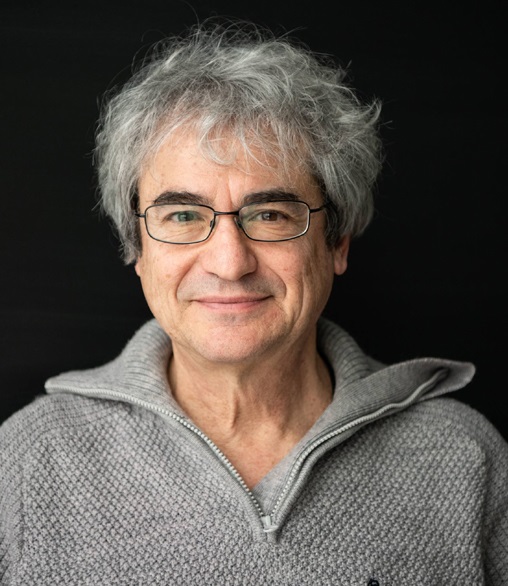
Rovelli, Carlo
Carlo Rovelli is an Italian theoretical physicist at Centre de Physique Theorique de Luminy. His work is mainly in the field of quantum gravity, where he is among the founders of the loop quantum gravity theory. He has also worked in the history and philosophy of science. Rovelli has written more than 200 scientific articles published in international journals, and authored several books. His book, Seven Brief Lessons on Physics, has been translated into 41 languages.

Sur, Mriganka
Dr. Mriganka Sur is the Newton Professor of Neuroscience and Director of the Simons Center for the Social Brain at MIT, which he founded after 15 years as head of the MIT Department of Brain and Cognitive Sciences.
He has received numerous awards and honors, most recently the Krieg Cortical Discoverer Prize, and delivered distinguished lectures world-wide. He has trained over 80 doctoral students and postdoctoral fellows, and received awards for outstanding teaching and mentoring. At MIT, he has been recognized with the Sherman Fairchild and Newton Chairs. He is an elected Fellow of the Royal Society of the UK, the National Academy of Medicine, the American Academy of Arts and Sciences, the American Association for the Advancement of Science, the World Academy of Sciences, the Indian National Science Academy, and the American Institute of Medical and Biological Engineering.